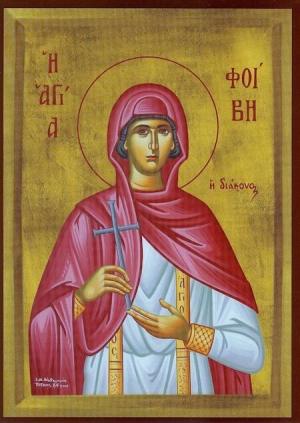Changing the Faltering Paradigm by Sarita Melkon Maldjian
Since the rise of feminist biblical scholarship, women from all religions and nationalities have been voicing their views as witnesses to the different forms and degrees of oppression in patriarchal religious institutions, the academy, and in society. The unconditional devotion to feminism has given so many silenced women a chance to finally take responsibility for their own lives.
Each person who has contributed to the feminist movement has done their share in carrying the torch for their female ancestors—so many of whom kept this metaphorical flame alive in secret for much too long. Janice Capel Anderson states plainly in her article “Feminist Criticism: The Dancing Daughter” from the 1992 book Mark & Method: New Approaches in Biblical Studies: “Each feminist critic is a unique pearl with a unique color and shape formed out of the variables of gender, race, class, sexual orientation, nationality, education, age, religion, and personal experience. Together we form intertwining strands of pearls, pearls of great price.”
Positively speaking, it could be stated that we are in the last gasp of a male-dominated Christian denominational society. On the other hand, when considering how the awareness of the importance of women has penetrated so much of biblical scholarship, it is surprising to find that the Catholic, Orthodox, and Apostolic churches have not budged an inch on the issue of apostolic succession. Those worthy to be ordained apostles of these churches have been strictly male for over two thousand years, and the hint of including one woman has threatened to break the very foundation of each of them. The biblical canonical “Twelve” were only male, and there is no negating that thus far. This may be the most overt subordination of women in these churches, and clearly exemplifies the androcentric view of the canonical biblical texts more than ever.
At the annual assembly of the Association of US Catholic Priests (AUSCP) held at the University of San Diego this past June, Cecilia Gonzalez-Andrieu, professor of theology and theological aesthetics at Loyola Marymount University, lamented that she is ineligible for the diaconate or the priesthood:
[M]y genetic makeup, what is inscribed in my cells by biology, makes it so I am kept from preaching, or baptizing, or exercising an ordained ministry that is assured to others simply because of their genetic makeup.
Is it possible that centuries of erroneous theories about who women are, of wrongheaded assumptions about women’s abilities, and of power structures seeking to subjugate women, have resulted in a church that has effectively silenced the Holy Spirit? The difference of being a woman in a church that rejects our gifts and our calling, causes me, and my sisters, a level of grief that is difficult to describe to others because it runs so deep.
It is a must for our Catholic, Orthodox, and Apostolic churches to move forward and feed the masses once again, as our pews are empty and many have turned from their faith, especially women who are called to serve as priests. For when our churches attempt to try systematically and institutionally to silence the issue of ordaining women, those in support of this issue come back with a heated voice of disdain that comes from neglect and suppression. We, as women and female supporters, are not stating that we want to remove the patriarchy completely, but we are begging for an equal say and seat at the table of discussion. Allowing women to vote in the Synod for the first time in history is a step in the right direction.

Saint Phoebe
About 40 female advocates for women’s ordination from various countries gathered for a prayer vigil on October 3, 2023, the eve of the Synod, at the ninth-century Basilica of St. Praxedes. The participants prayed together, sang, and listened to individual stories concerning the role of women in the church.
Such stories are pleas to be of equal sound mind and body, to be a part of the hierarchical mission of the Catholic Church. It is very hard for women to progress when they are relegated to merely being Sunday School or Bible study leaders, or cooks in the kitchen for church functions, or matriarchs of only their own family units but not those of the local church families and parishes. It is time to give us equal voices and opportunities through ordaining us as subdeacons, deacons, and priestesses so that our voices of frustration will finally be overcome.
So much progress could already have been made had the Catholic, Orthodox, and Apostolic churches started training young women to serve on the altar as subdeacons and deacons, possibly leading to ordination. As more churches find themselves struggling to stay afloat or closing with empty pews week after week, the talents of so many women who eagerly bring their children and elderly friends and family to church each week are ignored. This is a waste of “spiritual food,” as these same women can change the faltering paradigm of the churches by their leadership in ordained positions.
Our reality now in the 21st century is that many women are no longer confined to only the domestic realm. Many of us have aptly adjusted our lives to working outside the home while raising our families, caring for our elderly as the “sandwich generation,” looking after our homes, family, and friends, and still managing to continue a vibrant life of faith. It is not properly acceptable for the patriarchy to deny us the rights of ordained clergy when we are no longer confined to the domestic realm as property of our fathers, husbands, brothers, and male family.
We as modern women are applauded for our ability to multitask and for our deep unconditional love and compassion for those we care about. This being said, why wouldn’t the church want a woman to lead the flock of her designated parish? She sounds perfect for the job description. ♦
Sarita Melkon Maldjian is a professor of the Core and the English departments at Seton Hall University in South Orange, New Jersey. She is an advocate for Catholic school education and ordaining women in the Catholic, Orthodox, and Apostolic churches. She and her family are active members in the Armenian Apostolic Church, and all of her children have attended Catholic schools from pre-K through grade 12. She and her family are professional classical musicians and have performed all over the tri-state area. She holds her master’s degree in theology and doctorate degree in Biblical studies and music pedagogy from Drew University, Madison, New Jersey.




Leave a Reply
Want to join the discussion?Feel free to contribute!